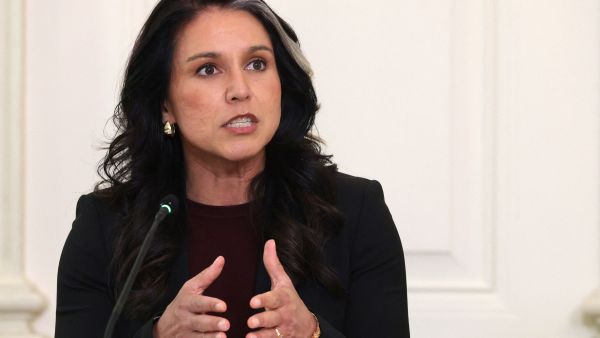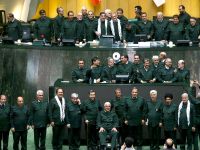ALBAWABA - Tulsi Gabbard, the Director of U.S National Intelligence, said that President Donald Trump's administration has officially ended Washington's long-standing policy of "regime change and nation-building." This marks a major change in U.S. foreign policy.
Gabbard told regional leaders before the Manama Dialogue, an annual security conference in Bahrain hosted by the International Institute for Strategic Studies (IISS), that the United States has moved on from decades of interventionist policies that often caused instability and anger in the Middle East.
A Change in What Washington Values
Gabbard says that Trump's foreign policy in his second term has shifted away from the U.S.'s traditional goals of promoting democracy and human rights and toward a renewed focus on economic growth and regional stability.
This method includes trying to keep the ceasefire between Israel and Hamas in Gaza and stop the 12-day war between Israel and Iran, which started when U.S. bombers hit Iran's nuclear sites.
Gabbard said, "The time of trying to change other countries to look like America is over." She stressed that the new strategy puts stability, security, and economic growth ahead of political intervention.
Getting Away from the Old Way of Thinking
Gabbard, a former congresswoman from Hawaii and Army National Guard veteran, called past U.S. foreign policy a "self-defeating cycle of regime change and nation-building."
She said, "For decades, our foreign policy was stuck in an endless loop of overthrowing governments, forcing our systems on them, and getting involved in wars we didn't understand." "The end result was spending trillions, killing many people, and often making security threats even worse."
Analysts say that Gabbard's comments are part of a larger shift in how the U.S. interacts with the Middle East. Instead of sending troops to fight, the U.S. now wants to have an impact through partnerships and diplomacy.
The comments, which are similar to what Trump said earlier this year, suggest that the U.S. is moving into a new phase of practical foreign policy that focuses on containment, deterrence, and economic alliances instead of ideological conflict.










